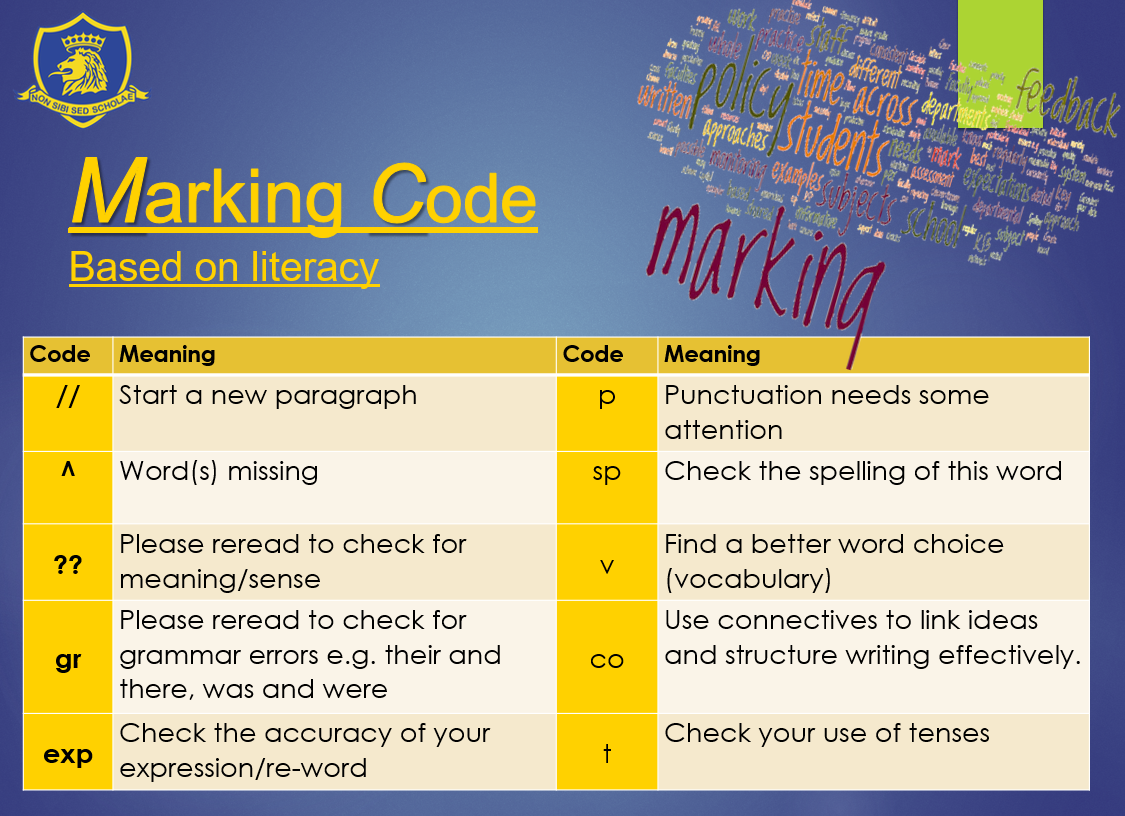Marking & Feedback
Overview
At The English School, we ensure that students receive regular marking and feedback to maximize their educational benefit. This enables them to understand their progress, recognize their achievements, and identify areas for improvement.
Objectives of Marking and Feedback
Our goals for marking and feedback are to:
- Monitor, evaluate, and review student progress, identifying next steps for improvement.
- Provide accurate feedback on student achievement.
- Foster a positive self-image and growth mindset, encouraging students to value and take pride in their work.
- Celebrate student achievements and set improvement targets.
- Standardize marking procedures across the school and within departments.
- Share good practices in departmental meetings.
- Enable students to self-evaluate their work, set personal targets, and engage in peer assessment.
- Establish a consistent approach to marking literacy across all subjects.
- Provide evidence for assessment, recording, and reporting.
Frequency of Marking and Departmental Policies
Each department at The English School has its own marking policy, developed in consultation with the SLT Line Manager to ensure consistency within the department. While maintaining high standards is essential, we recognize that marking practices will vary depending on the subject and students' needs.
- Departments specify a minimum number of marked pieces of work per term, tailored to each course and subject area. For example, marking in English will differ from Maths, Science, or Design & Technology.
- Project-based subjects have regular marking even if projects extend over longer periods.
- Marking criteria are shared with students in clear, student-friendly language and, where possible, included in workbooks for easy reference.
Marking is based on effective, impactful practices rather than marking every piece of work. Our approach balances practicality with constructive feedback, enabling teachers to maintain a positive work-life balance while enhancing student learning.
Supporting Exam Preparation
Each department’s marking policy includes regular past paper practice to familiarize students with exam formats and strengthen their understanding of the syllabus.
Work Scrutiny and Sharing Good Practice
Work Scrutiny
The English School conducts an annual review of student work according to a schedule set by Heads of Department and the Senior Leader in charge of Teaching & Learning. The primary aims of work scrutiny are to:
- Enhance Student Progress: Identify evidence of long-term learning, such as improvements in writing quality, skill development, and correction of errors.
- Ensure Quality Assurance: Evaluate teacher practices against criteria that reflect effective marking and feedback, ensuring that these practices support student learning and improvement.
Professional Development and Sharing Good Practice
Work scrutiny also offers opportunities for teachers to reflect on their strengths and identify areas for further development. Effective marking and feedback practices are shared within and across departments to ensure that work scrutiny positively impacts teacher development.

